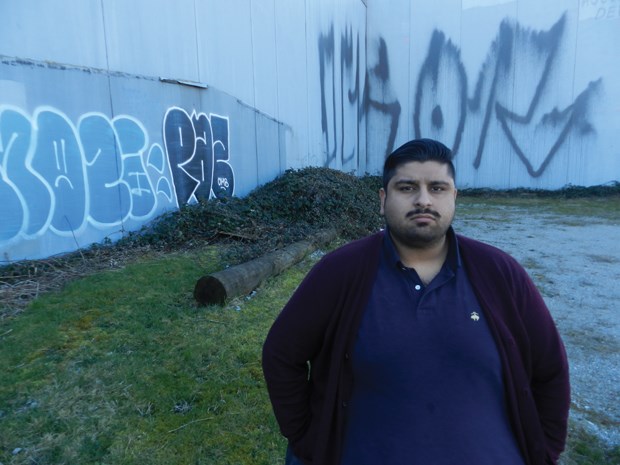Sometimes graffiti victims in Richmond feel the best action is to leave well enough alone once they have been targeted - live with the blemish on their property and maybe that will be deterrent enough. For Parkash Suri, president of Swift Green Filters on Bridgeport Road at No. 5 Road, he's convinced his brush with graffiti was a calculated scam.
About a day after the exposed, two-storey wall of the building his father owns was tagged with black letters soaring about 25 feet high, he was visited by a graffiti removal company asking if he needed their services.
Too much of a coincidence, Suri said. That was about a year and a half ago. The graffiti remains and has attracted just one more addition.
What motivates someone to reach for a spray can or permanent marker to deface a sign, wall or window? Karen Parhar, a member of KPU's department of psychology, said it can be attributed to a number of causes.
"One theory of why people do things like this is self determination," Parhar said. "Another is a competency factor - you feel you're good at something. And a third is the need for expression, to state your individuality or autonomy, having freedom."
Some of it can be traced back to gang cultures and the individual's desire to fit in with a group, while at the same time expressing their unique attributes, added Parhar, whose background is in motivational research, criminal behaviour and forensic psychology.
"When somebody feels they're good at something, they'll feel part of a group. And it's a way to express their individuality. Plus, they don't feel like they are controlled." Graffiti artists, especially those classified as taggers, also fall into the narcissistic category.
"Definitely," Parhar said. "They are trying to make themselves individuals by getting their mark out there and want to show everyone what they have done."



